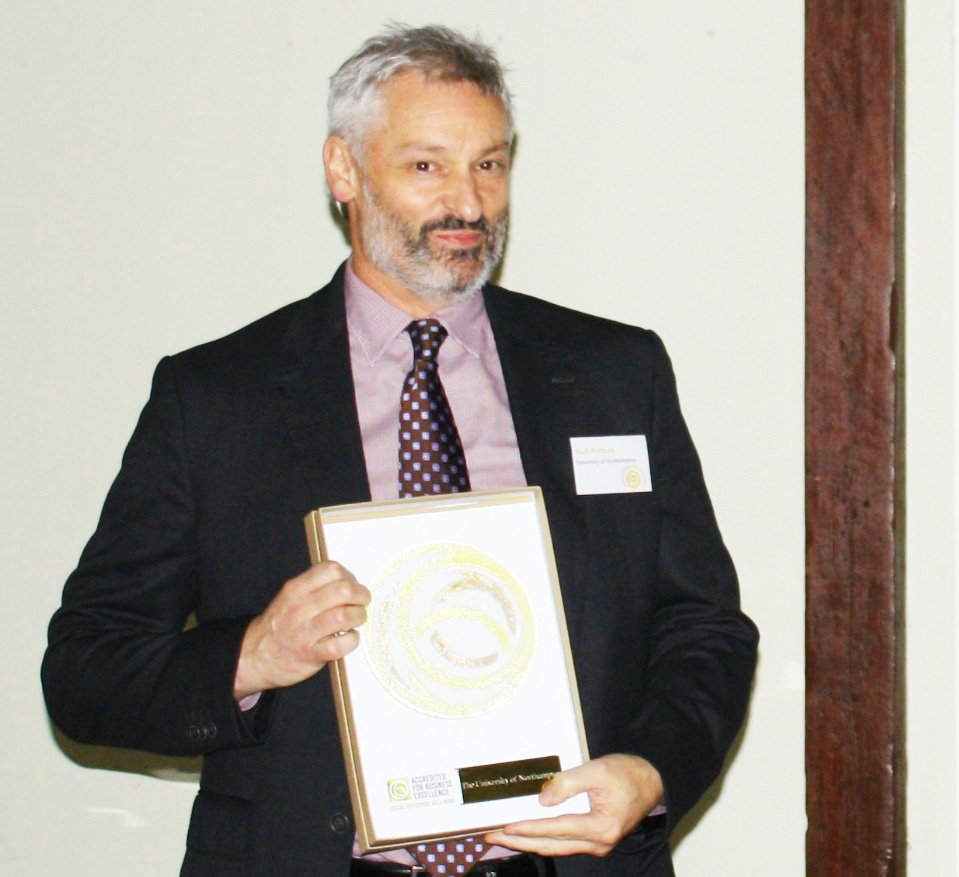University of Northampton hits the Gold Mark with social enterprise award win
Date 7.06.2017

The University of Northampton joined a growing list of universities and organisations committed to making an impact in society after winning an international award.
Vice Chancellor Nick Petford accepted the Social Enterprise Gold Mark from Social Enterprise Mark CIC in recognition of our excellence in a number of areas, including:
· Governance (for instance, our board processes are accountable and democratic)
· Business ethics and good business practice (our equality and diversity policies are second to none)
· Social impact and financial transparency (our funds support social & environmental impact)
The Gold Mark adds further recognition to our social impact work. In 2013 we became the first UK University to be called a ‘Changemaker Campus’ by Ashoka U, joining universities and colleges around the world recognised as global leaders in social innovation.
Welcoming the Gold Mark award Wray Irwin, our Head of University Centre for Employability and Engagement, said: “Northampton leads the charge when it comes to learning that makes an impact on society. Our whole way of working reflects this; making a difference is in our DNA.
“Receiving professional recognition for this is great news but the Social Enterprise Gold Mark in particular is testament to the dedication at Northampton, from students and staff alike to ‘do good things’ in the world beyond university.
“It goes without saying that the award really belongs to all of them. We all look forward to continuing on this path in the months and years ahead.”
Richard Cobbett, Assessment and Compliance Manager at Social Enterprise Mark CIC, commended Northampton on its obvious strategic commitment to creating social change: “I was impressed by The University of Northampton’s over-riding commitment to social innovation and social impact, which is not a sub-conscious by-product of University of Northampton life, but rather a driving force of being.
“It is not the role of a single team or set of processes but is an organic part of the way they operate as an institution.”